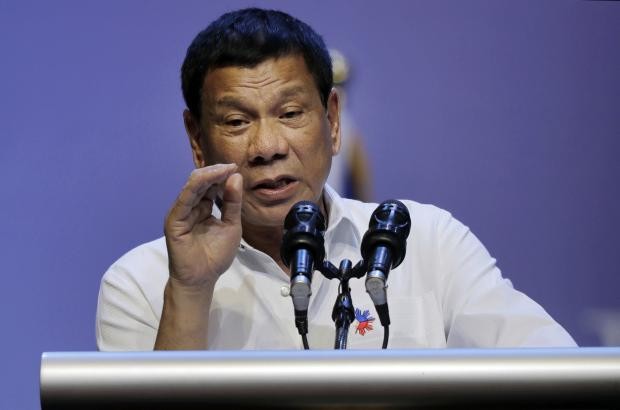Duterte’s tirades vs. media take highest office to ‘historic low’—CMFR
President Rodrigo Duterte’s expletive-laden attacks on the media have brought the presidency to a historic low, the Center for Media Freedom and Responsibility (CMFR) said on Friday.
“Made publicly and without any bases whatsoever, the president’s allegations against the media constitute verbal abuse — the cheapest form of harassment and intimidation that has brought the highest office to a historic low,” the media watchdog said in a statement.
The CMFR said that it takes exception to, and strongly disputes Duterte’s accusations against the media and his allegations of political and pecuniary motives in their coverage.
Duterte in an expletive-laced speech on Thursday accused the Philippine Daily Inquirer and ABS-CBN of putting out “slanted” reports against him.
READ: Inquirer reacts to Duterte’s accusation of ‘slanted’ reports
Article continues after this advertisementDespite Malacañang’s clarification that Duterte’s tirade against the two media outfits was not an attack on Philippine journalism, the CMFR said that the President’s accusation was “an attack against the institution and the country’s community of journalists.”
Article continues after this advertisementREAD: Palace: Duterte’s speeches attacking unfairness, not journalism
“The virulence and viciousness of his language are an abuse of power, a stain on the freedom of our public forum,” the CMFR said.
“The media are doing their institutional duty — to reveal the truth in the public interest. The practice is protected by constitutional rights and held responsible under the law for any proven wrongdoing,” it added.
The National Union of Journalists of the Philippines, earlier called Duterte’s statements “absolutely twisted.”
READ: NUJP slams Duterte for ‘twisted’ rants vs Inquirer, ABS-CBN
The NUJP said that it would not expect an apology from Duterte, but said his curses and threats cannot and will not stop journalists “from fulfilling (their) duty to inform the people as best (they) can of what is happening to our country, whether (he agrees) with what (they) report or not.” IDL
